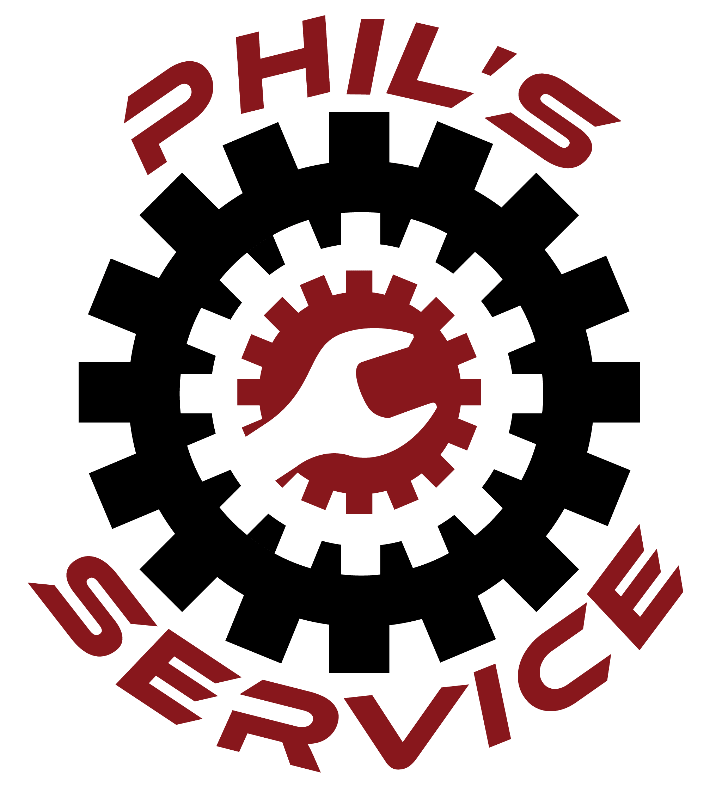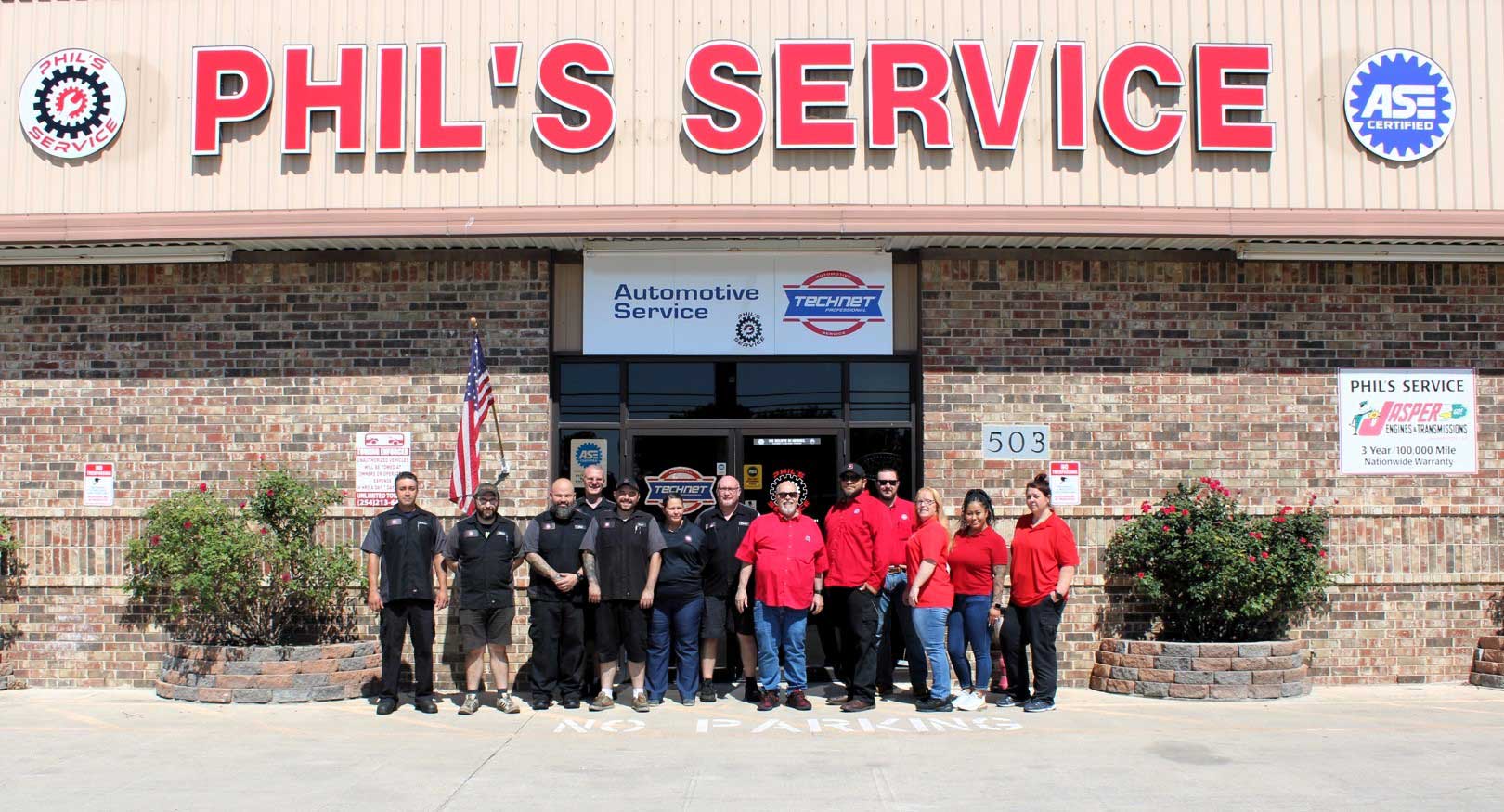Don't Forget Your Oil Change! How Forgetting to Change Your Oil Can Lead to Engine Damage
In life, it's best to keep your routines simple. Make your bed, brush your teeth, take your vitamins—and change your oil.
You don't have to be a mechanic or mechanically inclined to understand the importance of an oil change. You don't even have to know what motor oil is. All you have to know is that driving with no oil or old oil is a big no-no as a car owner.
Financially speaking, a lot goes into purchasing and owning a car. The last thing you want is to spend more money on repairs that could have been prevented by simple engine maintenance. That's why we've dedicated this article to the importance of engine oil.
Keep reading to learn more about what engine oil does and what happens when it's neglected.
Engine Oil 101
Engine oil is a viscous liquid of varying thickness that provides the necessary lubrication and cooling for your car's engine. Different cars require different amounts and different viscosities of motor oil, but it all serves the same purpose.
Depending on the type of car you have, it may require one of two types of oil: mineral or synthetic. Mineral oil is petroleum-based, made from crude oil. Synthetic oil is exactly as it sounds—man-made in a lab to provide an environmentally friendly alternative to petroleum.
Mineral oil is cheaper, but synthetic oil lasts much longer. It also reduces the demand for natural resources, which is why it's used in the majority of the vehicles on the road today. Of course, you can switch between the two or use a blend, but mineral oil is currently being phased out for good.
Why You Have to Change Your Oil
The rule of thumb is that you should change your oil every 3,000 miles. Of course, with newer and technologically improved motor oils on the market, cars can go up to 10,000 miles before needing an oil change. regardless of oil innovations, one thing remains the same—you still have to change your oil.
As mentioned above, engine oil serves several purposes:
- It lubricates the engine's moving parts, providing protection from wear and tear. It does this by creating a later of oil that is atom-thin, which prevents those moving metal parts from having full contact with each other. This also prolongs the life of your engine
- It helps to keep your engine cool. Your coolant only goes so far, and while it does a great job, there are certain parts of your engine that it just can't reach. This is where the oil comes in, providing supplementary cooling to all of those spots
- It cleans the engine. As the oil flows through your engine, it picks up dirt and debris such as metal shavings and deposits that can and will damage your engine.
As the oil does its job, it will accumulate all the dirt and debris as well as break down over time. This means that any additives such as detergents, friction fighters, anti-rust agents, and dispersants lose their effectiveness. As the oil becomes dirty and loses its ability to lubricate and protect, it becomes harmful to your engine—which is why you have to have it changed after a certain amount of miles accumulate.
Driving With No Oil. Eek.
Think of the oil as the lifeblood of your car. It flows through all of the moving parts, keeping them lubricated, clean, cool, and working efficiently. If it gets dirty or low, your car may start to have issues—or stop working altogether.
Your car's engine is full of moving parts, i.e., your cylinders and pistons. These moving parts are made of metal. When metal is consistently moving and pressing against other pieces of metal, it causes friction. Metal-on-metal friction creates enough heat to weld surfaces together, and that's the last thing you want to happen in the heart of your vehicle.
The most common issue you'll face by driving with no oil or dirty oil is overheating. When your engine experiences overheating, it won't perform as well as it should. If this goes on for too long, the moving parts begin to wear out and meld together. Ultimately, these parts will completely seize up and your car won't work.
Trust us, the engine repair process is a long and expensive one. A new engine could cost you well over $4,000. That's not including labor, and you can double that amount if you drive a foreign car.
Driving with no oil or very low oil is singlehandedly the worst thing you could do to your card—and bank account.
How to Tell Your Car Needs an Oil Change
If you miss an oil change by 500 miles or so, there's no need to panic. Luckily, there are plenty of ways to tell that it's time for an oil change so you'll never forget:
- Keep an eye on your mileage sticker. Most mechanics and auto shops will put a sticker on the driver's side of your windshield. It'll have the date, mileage, type of oil, etc. to let you know when it's time to head back in for routine oil change
- Check the dipstick. If you suspect you may need an oil change, pull out the dipstick, wipe it, reinsert it, and pull it out again. If it comes out dark rather than a golden color, then it's time for a change.
- Listen to your engine. If you hear a knocking or tapping sound, it's most likely your engine's moving parts making contact due to lack of lubrication.
- Your oil check light comes on. There's a little genie bottle-looking icon on your dashboard. It's your oil warning light. If it's illuminated, your engine level is too low.
There are other ways to tell if your car needs an oil change or a tune-up, but the above listed are the main indicators. Keeping up with your service schedule is crucial to car maintenance, but it's a good idea to learn how to spot the warning signs.
Don't Forget to Change Your Oil
We totally understand why you would avoid going to the dentist, but driving with no oil is inexcusable. So, please don't avoid your oil changes!
We're here to help you take care of your car so that it can live a long, healthy, and happy life. If you think it may be time for an oil change or need another service, contact us today.
Ever get so busy you forget to change your oil so you're driving with no oil in your car? Here is why that is a very bad thing.
In life, it's best to keep your routines simple. Make your bed, brush your teeth, take your vitamins—and change your oil.
You don't have to be a mechanic or mechanically inclined to understand the importance of an oil change. You don't even have to know what motor oil is. All you have to know is that driving with no oil or old oil is a big no-no as a car owner.
Financially speaking, a lot goes into purchasing and owning a car. The last thing you want is to spend more money on repairs that could have been prevented by simple engine maintenance. That's why we've dedicated this article to the importance of engine oil.
Keep reading to learn more about what engine oil does and what happens when it's neglected.
Engine Oil 101
Engine oil is a viscous liquid of varying thickness that provides the necessary lubrication and cooling for your car's engine. Different cars require different amounts and different viscosities of motor oil, but it all serves the same purpose.
Depending on the type of car you have, it may require one of two types of oil: mineral or synthetic. Mineral oil is petroleum-based, made from crude oil. Synthetic oil is exactly as it sounds—man-made in a lab to provide an environmentally friendly alternative to petroleum.
Mineral oil is cheaper, but synthetic oil lasts much longer. It also reduces the demand for natural resources, which is why it's used in the majority of the vehicles on the road today. Of course, you can switch between the two or use a blend, but mineral oil is currently being phased out for good.
Why You Have to Change Your Oil
The rule of thumb is that you should change your oil every 3,000 miles. Of course, with newer and technologically improved motor oils on the market, cars can go up to 10,000 miles before needing an oil change. regardless of oil innovations, one thing remains the same—you still have to change your oil.
As mentioned above, engine oil serves several purposes:
- It lubricates the engine's moving parts, providing protection from wear and tear. It does this by creating a later of oil that is atom-thin, which prevents those moving metal parts from having full contact with each other. This also prolongs the life of your engine
- It helps to keep your engine cool. Your coolant only goes so far, and while it does a great job, there are certain parts of your engine that it just can't reach. This is where the oil comes in, providing supplementary cooling to all of those spots
- It cleans the engine. As the oil flows through your engine, it picks up dirt and debris such as metal shavings and deposits that can and will damage your engine.
As the oil does its job, it will accumulate all the dirt and debris as well as break down over time. This means that any additives such as detergents, friction fighters, anti-rust agents, and dispersants lose their effectiveness. As the oil becomes dirty and loses its ability to lubricate and protect, it becomes harmful to your engine—which is why you have to have it changed after a certain amount of miles accumulate.
Driving With No Oil. Eek.
Think of the oil as the lifeblood of your car. It flows through all of the moving parts, keeping them lubricated, clean, cool, and working efficiently. If it gets dirty or low, your car may start to have issues—or stop working altogether.
Your car's engine is full of moving parts, i.e., your cylinders and pistons. These moving parts are made of metal. When metal is consistently moving and pressing against other pieces of metal, it causes friction. Metal-on-metal friction creates enough heat to weld surfaces together, and that's the last thing you want to happen in the heart of your vehicle.
The most common issue you'll face by driving with no oil or dirty oil is overheating. When your engine experiences overheating, it won't perform as well as it should. If this goes on for too long, the moving parts begin to wear out and meld together. Ultimately, these parts will completely seize up and your car won't work.
Trust us, the engine repair process is a long and expensive one. A new engine could cost you well over $4,000. That's not including labor, and you can double that amount if you drive a foreign car.
Driving with no oil or very low oil is singlehandedly the worst thing you could do to your card—and bank account.
How to Tell Your Car Needs an Oil Change
If you miss an oil change by 500 miles or so, there's no need to panic. Luckily, there are plenty of ways to tell that it's time for an oil change so you'll never forget:
- Keep an eye on your mileage sticker. Most mechanics and auto shops will put a sticker on the driver's side of your windshield. It'll have the date, mileage, type of oil, etc. to let you know when it's time to head back in for routine oil change
- Check the dipstick. If you suspect you may need an oil change, pull out the dipstick, wipe it, reinsert it, and pull it out again. If it comes out dark rather than a golden color, then it's time for a change.
- Listen to your engine. If you hear a knocking or tapping sound, it's most likely your engine's moving parts making contact due to lack of lubrication.
- Your oil check light comes on. There's a little genie bottle-looking icon on your dashboard. It's your oil warning light. If it's illuminated, your engine level is too low.
There are other ways to tell if your car needs an oil change or a tune-up, but the above listed are the main indicators. Keeping up with your service schedule is crucial to car maintenance, but it's a good idea to learn how to spot the warning signs.
Don't Forget to Change Your Oil
We totally understand why you would avoid going to the dentist, but driving with no oil is inexcusable. So, please don't avoid your oil changes!
We're here to help you take care of your car so that it can live a long, healthy, and happy life. If you think it may be time for an oil change or need another service, contact us today.


